#disabilityinkidlit
Explore tagged Tumblr posts
Text
@90-ghost @nabulsi @ibtisams @socalgal @vague-humanoid @neptunerings @chilewithcarnage @frigidwife @diasdelasombra @annevbonny @tamarrud @stuckinapril @king-b0mbastic @dykesbat @lesbianmaxevans @qattdraws @irhabiya @sar-soor @sayruq @gazagfmboost @dlxxv-vetted-donations @vetted-gaza-funds @butchniqabi @butchfeygele @butchfeygela @self-hating-zionist @antizionisttranslations @antifainternational @antizionistprincess @gothhabiba @khanger @userpeggycarter @zamanassad @palhelp @resourcesforradicals @watermotif @rhubarbspring @anneemay @pcketknife @appsa @malcriada @wellwaterhysteria @queernigga @lesbiancalliope @lesbianholster @lesbiannova @queerstudiesnatural @feluka @kordeliiius @gazavetters @turtletoria-art @northgazaupdates2 @socalgal69 @gay-fae13 @quotes @rhymeswithfart @bbluejoseph @satan-is-a-furry @flatwoodscryptid @arocoded @mewdivorce @bonetrousled @opencommunion @infectedpaul @garnetgh0st @pcktknife @ankle-beez @philsmeatylegss @mar64ds @tamamita @schoolhater @athetos @serial-unaliver @aerequets @darthteeth @prisonhannibal @disabilityuserboxes @disabilityhealth @disabilityhorizons @disabilityinkidlit
Hello every one ♥️
My name is Shatha, a mother of three children from Gaza 🍉🇵🇸, living through extremely harsh conditions. We have been displaced over 15 times, searching for safety, but to no avail. I have two daughters, Toleen (6 years) and Layan (2 years), and my young son Walid (3 years), who was born with a disability and is unable to walk. Walid used to receive regular physical therapy before the war, but now his condition has worsened due to the current crisis.
✅️ Vetting info
#1000 in the Butterfly Project spreadsheet [here]
#246 in the @gazavetters spreadsheet [here]
#259 in the Pali.Pals spreadsheets [here]
Vetted by @turtletoria
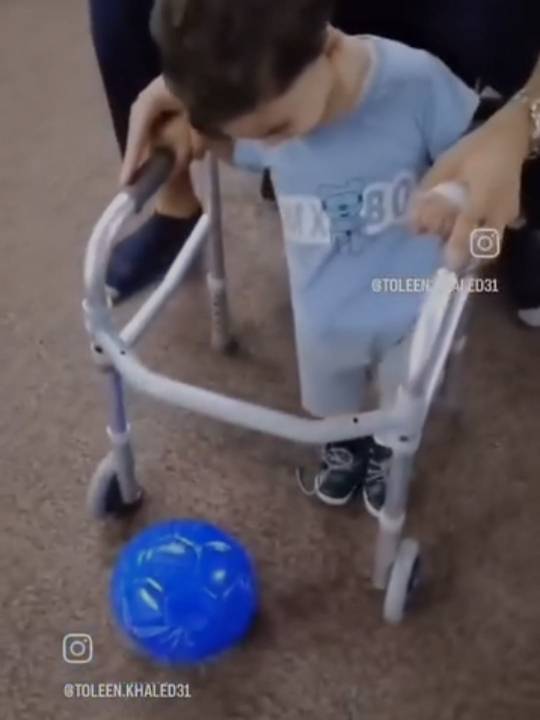
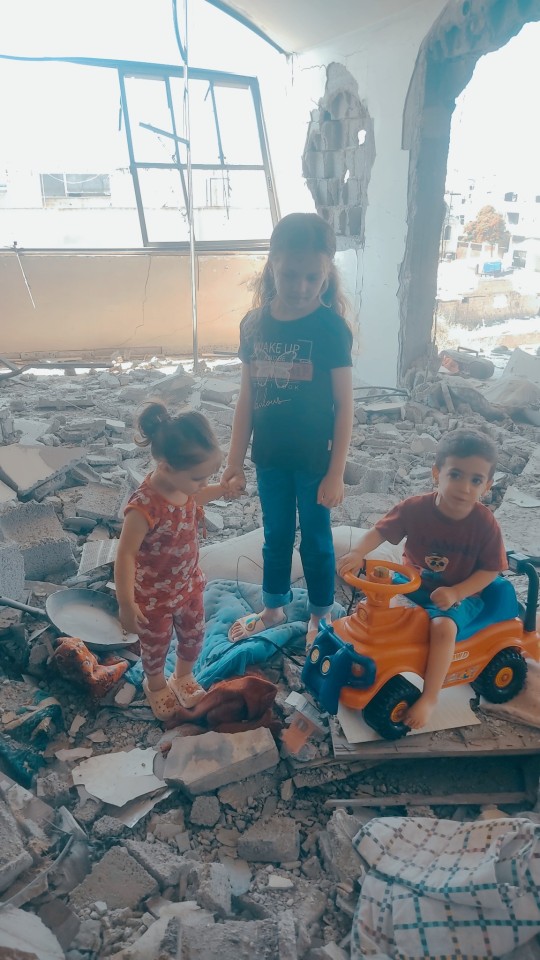
Today, we are enduring severe humanitarian conditions, lacking access to food, clean water, and medicine💔. My children need basic essentials like milk, diapers, and clean clothes💔.

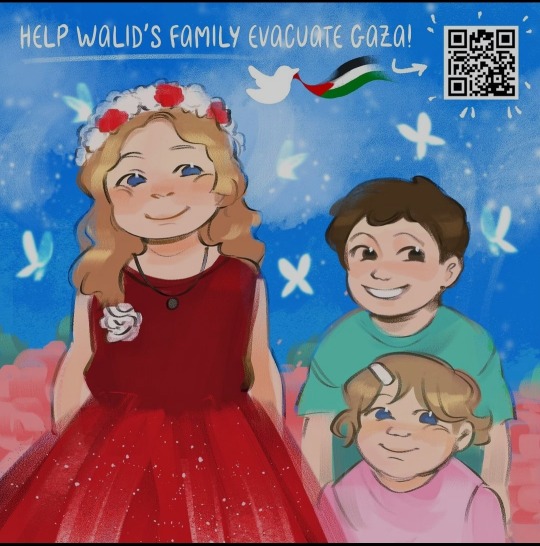
My husband also lost his job and source of income in the war, and his workplace was destroyed. He worked in the academic field at the university. 💔💔

Walid suffered severe burns to his head during the war😓, and also many kidney diseases, and my little girl Layan was infected with hepatitis😓💔 due to malnutrition and polluted water.💔
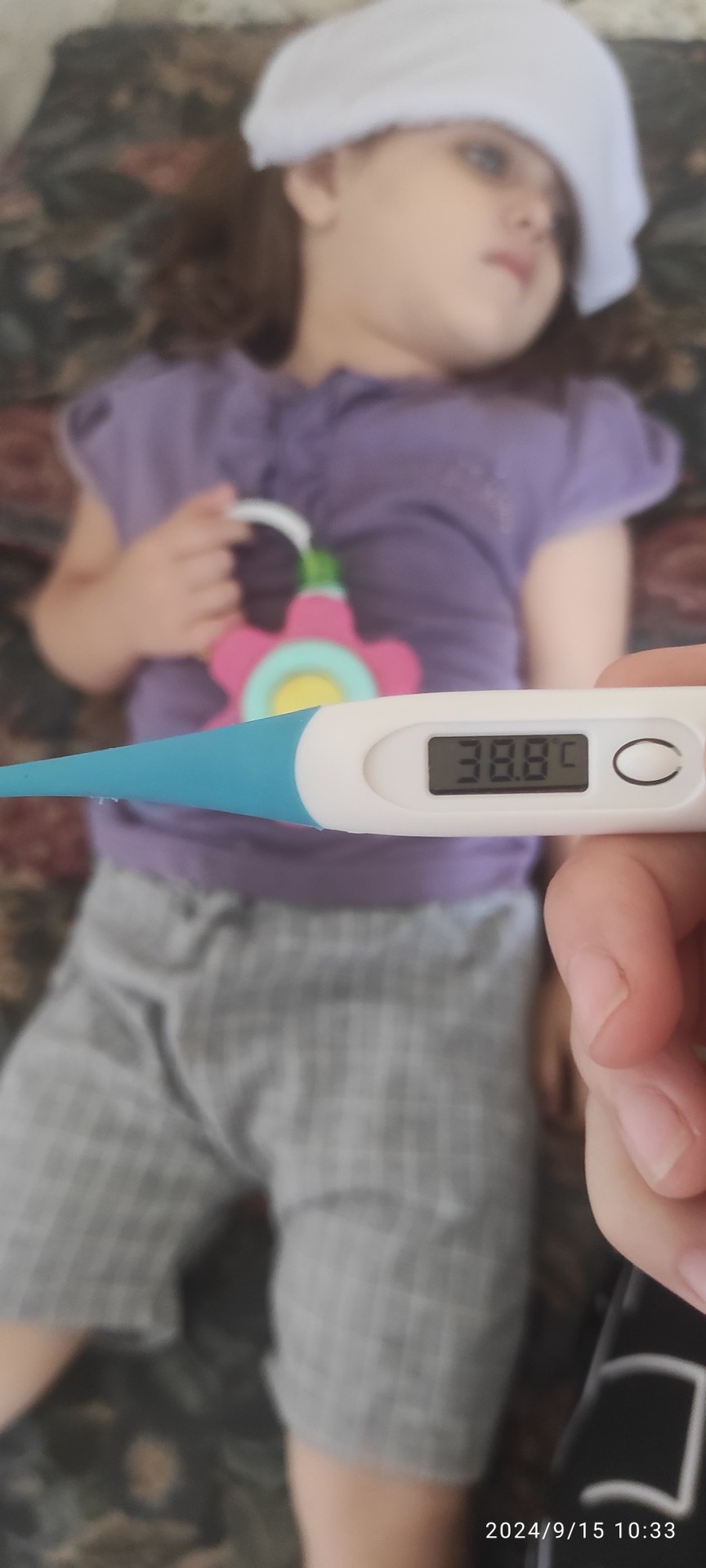
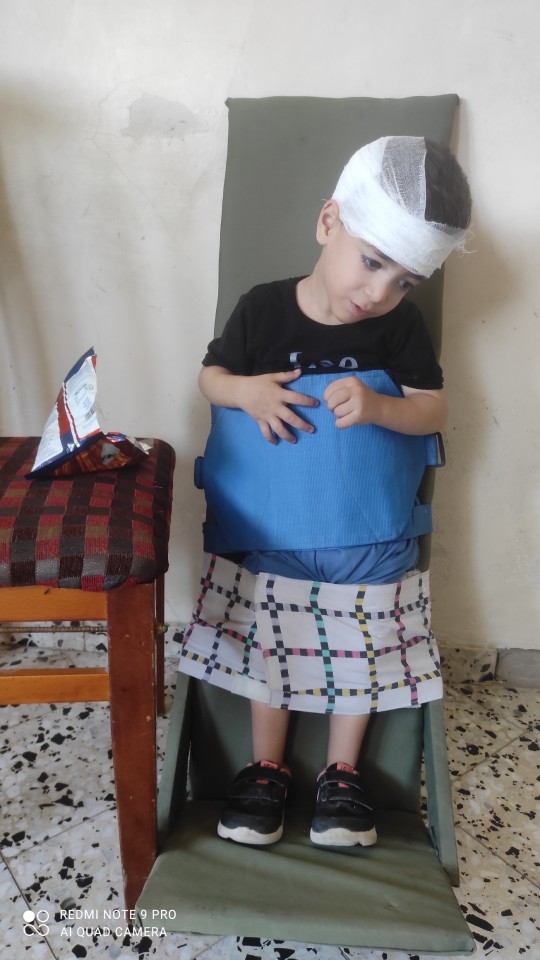
I have launched a support campaign for my children to provide for these basic needs, especially for Walid, who urgently needs to continue his treatment and receive the necessary medical supplies. So far, donations have been few, and I am hoping you can help us by donating and sharing the campaign. Any help, no matter how small, will make a big difference in my children’s lives. 🥺🙏🙏🙏
Thank you from the bottom of my heart.❤️❤️
✅️ Vetting info
#1000 in the Butterfly Project spreadsheet [here]
#246 in the @gazavetters spreadsheet [here]
#259 in the Pali.Pals spreadsheets [here]
Vetted by @turtletoria
Sending love to you 💞💞💞💞
🩵 Walid’s Family 🩵
@sar-soor @appsa @akajustmerry @annoyingloudmicrowavecultist @thatdiabolicalfeminist @sayruq @tortiefrancis @tsaricides @riding-with-the-wild-hunt @vivisectionmoth @belleandsaintsebastian @kordeliiius @brutaliakhoa @raelyn-dreams @troythecatfish @ot3 @the-bastard-king @pcktknife @4ft10tvlandfangirl @queerstudiesnatural @northgazaupdates2 @90-ghost @skatehan @awetistic-things @baby-girl-aaron-dessner @variantsofblue @thedigitalbard @socalgal @paper-mario-wiki @ibtisams-blog @nabulsi @lesbianmaxevans @buttercupagere @malcriada @dykemarcille @dlxxv-vetted-donations @paparoach @neptunerings @newporters @postanagramgenerator @alivehouse @meshugenist @mangocheesecakes @2spirit-0spoons @khangerinedreams @wizardarchetypes @gaza-evacuation-funde @rununcal @virovac @geosparks13-blog @maaaaaaaaaaaaaaaaaaaaaal
#gravity falls#halloween#artists on tumblr#free palestine#save palestine#gofundme#donations#support#save the children#kids#free gaza#food#kamala harris#photographers on tumblr#baby#disabilties#treatment#help#save gaza#gaza strip#gazaunderattack#family#university#school#sadgirl#happy#happy halloween#gaza#photography#palestine aid
1K notes
·
View notes
Text
Happy International Day for People With Disabilities!!!
December 3rd is the day we celebrate the contributions of the disabled community and, for able-bodied people, learn how to be better allies to this grossly under-represented community.
Here on booklr, we all know the importance of reading #OwnVoices stories - a concept that was invented by disabled author, Corinne Duyvis - but when was the last time you read a book by a disabled author? Or featuring a disabled character?
Not sure? Well, now’s a great time to fix that!
@disabilityinkidlit have an excellent collection of books on their blog and a wonderful selection on their Goodreads page sorted by different conditions - complete with #OwnVoices reviews so you can be sure what you’re reading isn’t misrepresenting the people it’s portraying
I also have a tag for books featuring characters with disabilities, and over on my Goodreads I have a shelf for neurodivergent or physically disabled characters and another for characters experiencing mental illness.
If you pride yourself on reading diversely, please don’t forget to include disabled authors and stories in your diversity. 1 in 5 people around the world live with a disability and we deserve to be represented fairly and accurately in the global media landscape.
Happy IDPWD 2020!!!
114 notes
·
View notes
Note
this may be a weird question, but do you know any good resources on how to respectfully write characters with memory loss? I'm writing a Taz balance fic looking at the long-term effects of voidfishing, and a possible result of that is difficulty in retaining memories that have been returned. this is similar to forms of amnesia and even alzheimers, and I don't trust media one lick to give me an accurate representation to base this fic off of. do you have any websites or sources you recommend?
@disabilityinkidlit and @cripplecharacters would be good places to start, though i don’t know if they’ve addressed memory loss.
also this post where other resources were linked! and you can also check out my resource tag, there may be something useful there
36 notes
·
View notes
Link
Seriously, I don't feel I should have to justify my existence, but to those who question the value of people with Down Syndrome, I would make three points.
First, we are a medical gift to society, a blueprint for medical research into cancer, Alzheimers, and immune system diroders. Second, we are an unusually powerful source of happiness: a Harvard-based study has discovered that people with Down Syndrome, as well as their parents and siblings, are happier than society at large. Surely happiness is worth something? Finally, we are the canary in the eugenics coal mine. We are giving the world a chance to think about the ethics of choosing which humans get a chance at life. So we are helping to defeat cancer and Alzheimers and we make the world a happier place. Is there really no place for us in the world?
Is there really no place for us in the NIH budget?
“I am a man with Down Syndrome, and my life is worth living.”
263 notes
·
View notes
Note
I'm having trouble incorporating disabilities in the future. Most research gives me politics and science and society view but not actual technology and advancements, which is what I need to build the environment visually.
Saphira: 3-D Printing is already doing wonders for prosthetics. Playing with that alone is going to be a lot of fun, so look into different home-made prosthetics that folks have been printing (particularly for children) and it will help you predict a possible future.
Conversely, look at the history of Glasses. It can show you where we've been as far as the disability of sight and its development into a Normalized Human Feature.
Now there are legions of other disabilities, none of which I am able to speak on directly. For that, go to the people themselves. The beauty of our current era is that everyone can have a voice. Want to know more about those wheel-chair bound? Find a blog. Reach out to them. Ask what they would love in a future made with them in mind. Want to know about those who cope with Dyslexia? Colour Blindness? Ask them.
Stepping into more controversial topics, look at the culture of the Deaf. They are as much a culture who rose up out of disdain and oppression not unlike the LGBT+ community. Listen to their stories and what sort of futures they see. Look at their history and their present.
I figure you are trying to represent a backdrop for a more advanced unified culture- but its not so much the tools and visual changes that lead to accommodation. First comes the mindset.
Feral: One technology to consider is not just personal modifications but how the world is modified to accommodate all people. Many disabled people will tell you that one of the biggest challenges they face is how the world excludes them. A future society that wants to include all people is going to look different - the constructed environment is going to be designed differently. In today's world, it's called Universal Design. We've still got a very long way to go. So, you have plenty of space to explore ideas for your futuristic world.
Tex: Well, the politics and science and society view are very important in incorporating disabilities, especially in terms of helping you to parse what subjects to look in.
To look into a specific example, prosthetics have made leaps and bounds in the past few generations. The Alternative Limb Project uses prosthetics as a medium to create art, as well as an option to purchase realistic prosthetics to minimize attention to missing limbs.
Technology and advancements is science, of the assistive technology sort. I'm not sure what aims you have for futuretech, but I reckon looking at the gaps in current technology and extrapolating what solutions to those problems might be would help you develop better technologies for the disabled in the future. This is something that people in disability fields do every day when seeking to improve the technology they've already created, which is highly dependent on feedback from the people that benefit from their work.
Both Saphira and Feral bring up very important points. It is the users of these technologies and other aids that determines its development, and by their own culture, determining their own needs. Not everybody wants a cochlear implant, not everybody wants Lasik - it may be important to their culture to use sign language, or Braille, or something else, and they won't necessarily appreciate the idea of having to modify themselves to be more socially acceptable to the majority of society. That's something that needs to be taken into account with your worldbuilding, which you can get a better gauge on by asking these people themselves.
@scriptautistic is a good place to start, as is @scriptservicedogs archive. @livingwithdisability has posts talking about accessibility for a wide range of environments (from the personal to the digital), as well as their own website with product reviews so that you can see how a lot of things are being designed right now. @disabilityinkidlit , and their associated own site, has a lot of overlap with livingwithdisability. Urbancrippled has a list of answered questions, of which a lot of the broached topics are similar to the ones that you seem to be looking for.
The New York Times has an article (archived version ) about designing things for the elderly, which feeds into the universal design concept that Feral brought up, a subconcept which is called transgenerational design.
106 notes
·
View notes
Text
@marauders4evr @thechronicchillpill @wheelchairwhit @boulder-service-dog @iwrotesomeofitdown @puddle--wonderful @futuristicviolence @myliferunsonwheels @allthingsgrow @thedisabledlife @justrollinon @silversarcasm @nellemb @perksofbeingdisabled @andreashettle @disabilityinkidlit @disabilitythinking @livingwithdisability
hey! How are you? - sorry to tag you all like it’s 2013 on here again but I am crowdsourcing disability help/community lol - I hope this is ok to ask - I'm curious what your housing/aide/work situation is like cuz I'm just honestly trying to figure out how peeps in wheelchairs survive as my (I use a wheelchair and need aides to help me get up/go to bed at night/shower) whole situation is still.....up in the air (maybe it always will be)(I live on my own (in the US) and have for about seven years now but the winter and my work situation and my nonexistent social life are just beginning to take their toll on me)....anyway lmme kno -
i think half the problem is we tend not to talk about the specifics of our living situations cuz we're encouraged to be supercrips and just deal or we've become ashamed or something and we should talk about these things (along with the bullshit $2000 bank account limit in the US - which I know some peeps on Tumblr have spoken of b4)
If any of you would like to reblog this I’d also be curious how many of your (US, UK, CA, AUS, and otherwise, doesn’t matter) disabled followers (and any other disabled folk tbh) can talk knowledgeably about these issues as well?
Anyway - much love and strength, as always!
23 notes
·
View notes
Note
I search through “Disabilityinkidlit” tumblr found here: https://disabilityinkidlit.tumblr.com/
And I might also look for amputee disability support groups, but if you use any *specific* material be sure to get PERMISSION. Because consent is everything. It is 100% rude to take someone’s personal story without credit or permission. Remember that.
real people > fiction ALWAYS.
So be sure to get consent, especially if you don’t have the disability yourself because you have a systemic advantage they don’t.
Also, there are often support tumblr and twitter accounts for writers specifically around disability. Again, be clear, don’t obscure your objectives, and ASK if they want credit, and how. They are giving you their time and labor. Don’t make a bad reputation for yourself. It’s bad press later. BTW, also, common courtesy is to own our own mistakes when writing groups that aren’t your own and not blaming your sources.
Hello, my current project has a protagonist who undergoes a below the knee amputation. I've done a fair bit of research on timelines, recovery, prostheses, and physiotherapy. However, I'm still struggling with more of the day to day nuances of living with the disability. I was wondering if you knew of any resources I could check out? Thanks :)
I'm not aware of any resources specific to day-to-day life living with an amputated leg. However, if you Google "living with an amputated leg" there are some "what to expect at home" resources that look like they might touch on concerns of daily life. There's also a website called "Living with Amplitude" that is geared toward amputees, and this would be a place to look for links to personal stories, blogs, interviews, and articles that will provide a glimpse into life as an amputee. Crutches and Spice is a website and Instagram account run by Imani Barbarin, a writer and Black woman with Cerebral Palsy, which covers issues, information, activism, and resources pertinent to living with disability. That would be another good website to dive into in your research. Finally, go to YouTube and search "living with leg amputation." There are some "what to expect at home" videos as well as videos about amputees and their stories.
I hope that helps with your research!
•••••••••••••••••••••••••••••••••
I've been writing seriously for over 30 years and love to share what I've learned. Have a writing question? My inbox is always open!
Learn more about WQA
Visit my Master List of Top Posts
Go to ko-fi.com/wqa to buy me coffee or see my commissions
16 notes
·
View notes
Note
Yo, I’m working on a deaf character for one of my novels, and I figured that if I wanna write it properly, I at least gotta learn ASL (I’ve been learning words and little phrases for the past three days now). I’m just wondering if there is anything I can do to make the characterization more accurate (and, if you don’t mind, send you a few pieces of the novel so far)
Hello,
first of all if you wanna learn ASL, i recommend attending a course with a Deaf teacher. Sign languages in general are best to learn with a live teacher, face to face.
I cannot help you with such a generic questions - I urge you to do research, there is plenty of stuff on internet, including my blog. Google is your friend.
As for the piece of novel - I am sorry, but I do not know you and reviewing novels is pretty hard and time-consuming work. Plus I don’t speak ASL but a different sign language, so I wouldn’t be able to tell if you have any mistakes in that regard anyway. Please do not send me your novel.
I am sorry if I seem harsh but this is my personal blog and there are blogs out there who advice about disability in stories specifically, like disabilityinkidlit.
Tenny
1 note
·
View note
Note
Ok, so I want to write a story where specific people can have one wish granted - any wish at all, no matter how impossible - and one of the characters I want to have has autism, I was thinking that this character has low self-esteem, and was bullied for her autism, so, when given the opportunity, she would choose her wish to be to remove her autism traits, only to later realize it was a HUGE mistake. Is this a bad idea?? If it is, I'll probably change the her wish.
I think that this is an idea which would be difficult to execute well. There are lots of issues implicit in your concept that would need to be navigated very carefully.
Part of the problem is it butts against the issue of whether an autistic person would be the same person if they didn’t have autism. I know that you have said that any wish can be granted “no matter how impossible”, but remember that in the real world the idea of being able to separate a person from their autism is highly contentious. It is reminiscent of people who talk about autism “stealing” and “trapping” their children, as if ASD can be separated from the rest of a person’s being.
There is not a clear, distinct boundary between autistic and non-autistic. An autistic trait is not unique to autistic people. An allistic person might have the same trait, but not other autistic symptoms. An allistic person might have the same trait, but to a lesser degree, so that it does not impact on their day-to-day life to the same degree.
This means that wishing to not be autistic is very vague. Would she lose all her autistic traits? Or just enough so that she no longer meets the diagnostic criteria? Would her traits change in intensity so that she was closer to “average”?
You might find it useful to read about Darryl, a character in Diane Duane’s A Wizard Alone. Darryl is offered the chance to no longer be autistic. In the original edition of A Wizard Alone,as well as not being the most accurate portrayal of an autistic character, Darryl chooses to leave his autism behind. However, when preparing the New Millennium Edition, Duane incorporated feedback from her readers, including getting rid of Darryl’s “cure”. She discussed this in a post on her tumblr. Although I have not read either edition, I have heard lots of positive feedback about Darryl’s portrayal in the New Millennium Edition. Looking at the differences between the two editions is likely to be an interesting and useful endeavor.
You may find it useful to read Who Gets to Stay Autistic? by Alyssa Hillary at @disabilityinkidlit
-Mod SnailIf this post was helpful, why not buy me coffee to say thanks?
25 notes
·
View notes
Note
hey! can you direct me to any good ask blogs about writing stories with disabled characters (specifically nd folks)? been looking around for a bit and haven’t found any. (for context, i’m considering writing a dnd game where magic is tied to emotion & wanna know more abt if that’s even a good idea rep-wise)
the only blog like that i can think of off the top of my head is @disabilityinkidlit which obviously focuses on YA writing but might have useful tips for you. what i always recommend to anyone wanting to know how to respectfully depict a culture, group or disabled person in a story is to do a search for “[blank] representation in literature” or “how to respectfully write [blank]”– search terms like that will likely lead you to firsthand accounts from members of the group you’re looking to tell a story about. and firsthand accounts are what you want! they’ll give you more insight into the conditions you’re trying to portray, as well as help you avoid offensive stereotyping or tropes. good luck!
32 notes
·
View notes
Note
for quickfire reviews do you know of any books with deaf main characters? especially fantasy but i'll take anything young adult genre
Hi nonnie <3 I had to have a bit of a think about this and I really can’t come up with much I’m sorry :/ but I’ve done my best and I’m opening it up to my followers in the hope that they’ll be able to add plenty more for you (come on booklr!).
YA Books In General:
Wild by Hannah Moskowitz - A really lovely YA contemporary/romance with a deaf love interest. Also bi rep. Zach’s life is filled up with learning how to be carer for his mum who is suffering with early-onset Alzheimer’s and his little sister. His support system is Jordan, the girlfriend who he’s only spoken to online - because she’s looking for a way to tell him she’s deaf. When she does, they’re so cute and he starts learning sign language for her and a bunch of other stuff and its just so nice.
@disabilityinkidlit and @andreashettle might be able to help you further. I’m sorry again for not having any more for you!
Want to join in with quickfire reviews? Send me an ask with what kind of books you want to see and I’ll give you some recommendations.
16 notes
·
View notes
Note
Hey I love your blog! I was wondering if you guys could recommend any similar blogs that review ya books? I'm looking for new reads to get me out of a reading slump and want even more opinions and suggestions?
Hi! Yes I know plenty of blogs to recommend you:
Bookavid, she is also on blogspot and has a patreon
Paperbackd
B00storebabe
Bisexualbooks
lgbtqbooks
Disabilityinkidlit
YAinterrobang - they don’t really post reviews but have all sort of bookish stuff
Asian YA who also have lots of bookish stuff
I do rely on twitter & wordpress more for reviews and recommendations so if you want any help on who to follow over there i’ll happily help!
12 notes
·
View notes
Text
Screw Winter, I’m ready for a new adventure.
@justrollinon, @marauders4evr, @myliferunsonwheels, @perksofbeingdisabled, @disabilityinkidlit, @disabilitythinking, @livingwithdisability, @jottingitalldown @thechronicchillpill
any of you guys know (or are connected with thru the tumblrs) disabled (who use wheelchairs) peeps who live in California, specifically the Los Angeles area?
I’m thinking about moving there again and I wanna kno how peeps like us manage out there...
If others see this who live there (regardless of disability) lemme know too!
Thanks
34 notes
·
View notes
Note
Do u know of any disabled characters that are represented positively?
Without a magical cure plot….? It’s hard to find.
I recently read Monstress Vol 1 and the main character is an amputee and amazing. I don’t foresee them magically curing her. Also some of the side characters in The Girl of Fire and Thorns series, but they are more prevalent in the later books. Obviously Kaz from SoC but I feel like everyone knows him by now.
Oh.. not a book but in case anyone forget that I’m obsessed with Mass Effect, the all star pilot in that series has a degenerative bone disease so he can barely walk but is recognized as one of the best pilots (the best) in the galaxy and is a stone cold sarcastic badass. My love.
Otherwise there a ton of other resources online, such as disabilityinkidlit.
12 notes
·
View notes
Note
Hi! I hope your day is great. Do you have any recs for books by disabled women?Specifically women of color and/or queer women would be fantastic, but any rec is good. Thanks so much!
Hey there! I’ll be honest and say that this is outside of my lane, but I have some resources for you! If you like and are looking specifically for YA or MG, there are a LOAD of awesome recs over on Disability in Kid Lit/@disabilityinkidlit. I would specifically recommend their Honor Roll and Content pages (the latter of which lets your filter and search).
I’ve also always looked to @bookavid, who is great and gives awesome recommendations on books. She has this specific list for upcoming YA by disabled authors and several other lists about specific disabilities, if you read through this page.
There are also these lists:
From We Need Diverse Books
From the University of Delaware
From Goodreads
That’s a lot of information to throw at you! I do have one rec that is HIGH on my TBR - anything by Octavia E. Butler, but specifically Kindred. That should check a couple of your boxes, at least, and I’ll be reading it soon too, if you want to read along with me. :)
Hope that was helpful!
1 note
·
View note
Note
Hi! I was wondering if you've ever read Mockingbird by Kathryn Erskine (a former favorite of mine) and how good of a representation it is? If it is accurate, it may help the anon who was asking about how their character might react to death. I'm not sure how long ago the term "Asperger's syndrome" was outdated, but this book does classify Caitlin as an Aspie (it was published in January 2010).
Hi!
I haven’t read Mockingbird, but @disabilityinkidlit have reviewed it on their website: http://disabilityinkidlit.com/2015/04/15/review-mockingbird-by-kathryn-erskine/
The reviewer there didn’t seem to enjoy this book (seeing it as “inspiration porn”). On the other hand, this reviewer felt that the main character was “portrayed realistically”. Caitlin was also a character that was recommended by one of our autistic readers.
This is a perfect example of autistic people having differing opinions.
(Edited to add: While I haven’t read Mockingbird, and so can’t weigh in usefully about the book itself, I would say that the portrayal of autistic characters who lack empathy is a touchy one - some autistic people do definitely self-describe as not experiencing empathy, or having not experienced empathy as a child)
-Mod Snail
6 notes
·
View notes